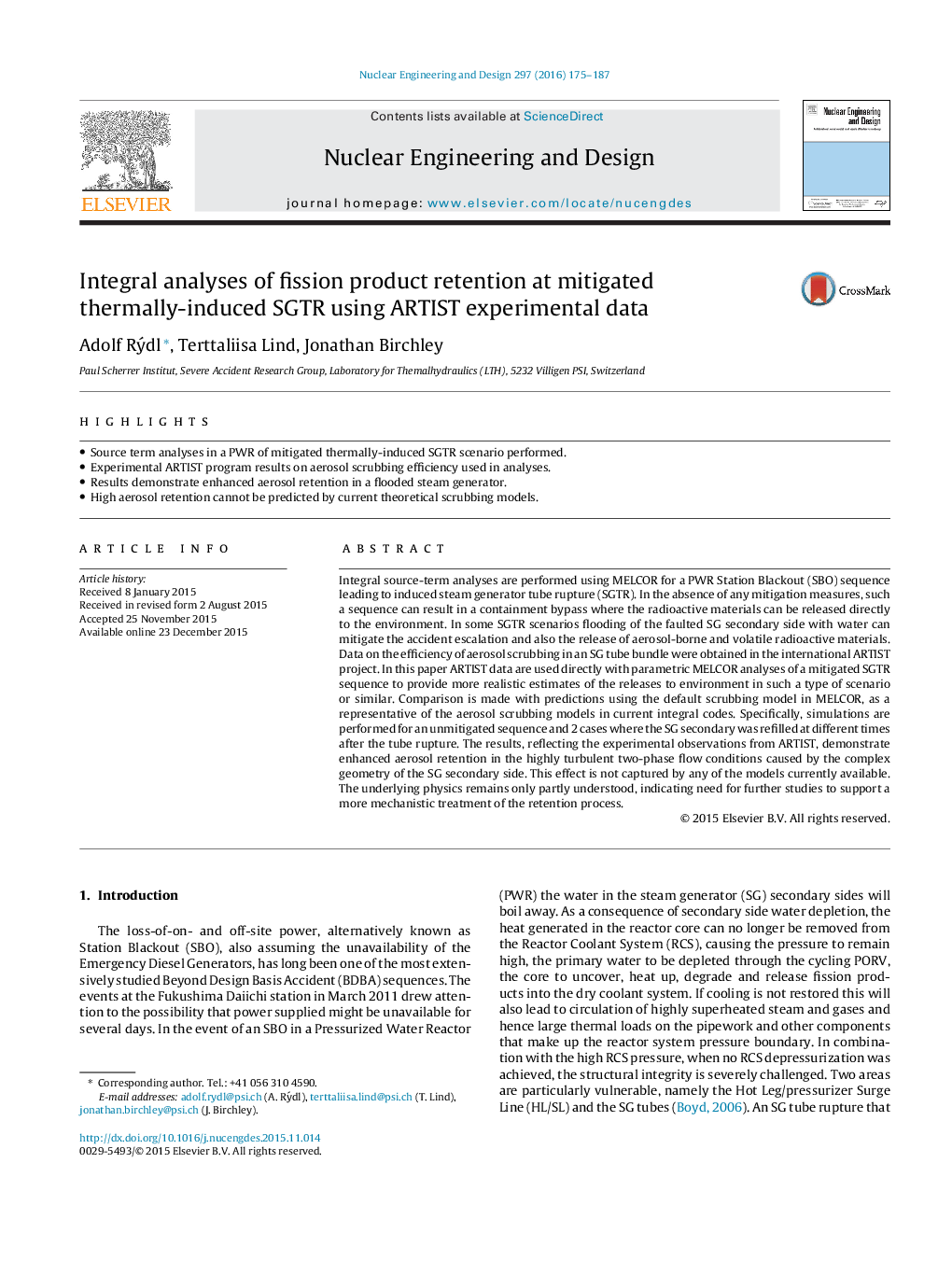| Article ID | Journal | Published Year | Pages | File Type |
|---|---|---|---|---|
| 296067 | Nuclear Engineering and Design | 2016 | 13 Pages |
•Source term analyses in a PWR of mitigated thermally-induced SGTR scenario performed.•Experimental ARTIST program results on aerosol scrubbing efficiency used in analyses.•Results demonstrate enhanced aerosol retention in a flooded steam generator.•High aerosol retention cannot be predicted by current theoretical scrubbing models.
Integral source-term analyses are performed using MELCOR for a PWR Station Blackout (SBO) sequence leading to induced steam generator tube rupture (SGTR). In the absence of any mitigation measures, such a sequence can result in a containment bypass where the radioactive materials can be released directly to the environment. In some SGTR scenarios flooding of the faulted SG secondary side with water can mitigate the accident escalation and also the release of aerosol-borne and volatile radioactive materials. Data on the efficiency of aerosol scrubbing in an SG tube bundle were obtained in the international ARTIST project. In this paper ARTIST data are used directly with parametric MELCOR analyses of a mitigated SGTR sequence to provide more realistic estimates of the releases to environment in such a type of scenario or similar. Comparison is made with predictions using the default scrubbing model in MELCOR, as a representative of the aerosol scrubbing models in current integral codes. Specifically, simulations are performed for an unmitigated sequence and 2 cases where the SG secondary was refilled at different times after the tube rupture. The results, reflecting the experimental observations from ARTIST, demonstrate enhanced aerosol retention in the highly turbulent two-phase flow conditions caused by the complex geometry of the SG secondary side. This effect is not captured by any of the models currently available. The underlying physics remains only partly understood, indicating need for further studies to support a more mechanistic treatment of the retention process.
